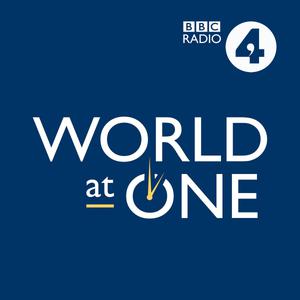
World at One
BBC
Forty-five minutes of news, analysis and comment, with Sarah Montague.
- 8 minutes 21 seconds20/10/2020
Mon-Thurs: Analysis of news and current affairs, presented by Sarah Montague. Fri: Analysis of news and current affairs, presented by Mark Mardell.
21 October 2020, 1:48 pm - 7 minutes 49 seconds19/10/2020
Mon-Thurs: Analysis of news and current affairs, presented by Sarah Montague. Fri: Analysis of news and current affairs, presented by Mark Mardell.
20 October 2020, 4:15 pm - 45 minutes 15 seconds12/08/2020
Mon-Thurs: Analysis of news and current affairs, presented by Sarah Montague. Fri: Analysis of news and current affairs, presented by Mark Mardell.
12 August 2020, 4:20 pm - 15 minutes 8 secondsMcCartney on Vegetarianism, Glastonbury and Xmas Carols
In an exclusive interview for Radio 4's World at One, Sir Paul McCartney tells Sarah Montague how his 'Meat Free Monday' campaign came about, shares his thoughts on young climate change activists, and his unreleased record of Christmas carols, made just for his family. He also talks about appearing at Glastonbury in 2020.
(Photo: Sir Paul McCartney, with presenter Sarah Montague Credit: Sir Paul McCartney)
12 December 2019, 4:38 pm - 45 minutes 1 second15/11/2019
Mon-Thurs: Analysis of news and current affairs, presented by Sarah Montague. Fri: Analysis of news and current affairs, presented by Mark Mardell.
15 November 2019, 4:50 pm - 24 minutes 12 secondsJeremy Corbyn interview
The Labour leader Jeremy Corbyn talks to Martha Kearney about the crisis in Yemen and his party's approach to Brexit.
(Photo: Jeremy Corbyn. Credit: BBC)
11 September 2017, 4:20 pm - 15 minutes 50 secondsThe British PR firm's role in South African politics - Part 4
In a series of pieces, Manveen Rana has been investigating the relationship between political power in South Africa, a London-based PR firm, and one of the country's richest families.
As the President faces a vote of no confidence, what links Jacob Zuma, the Gupta Brothers and Bell Pottinger Public Relations? And, with anger at corruption spilling over from the streets to parliament, has Nelson Mandela's rainbow nation been put in jeopardy by a political campaign born in Britain?
(Photo: Protesters in South Africa. Credit: Getty Images)
4 August 2017, 11:38 am - 10 minutes 27 secondsThe British PR firm's role in South African politics - Part 3
Until recently, South Africa was hailed as one of the so-called BRICS - the developing economies, growing at such a rate of knots, they were soon to join the economic premier league. Not anymore.
Next week, President Jacob Zuma faces a vote of no confidence, fuelled by accusations of financial corruption on a gargantuan scale.
One of the principal businesses to have been roped into the scandals are the Gupta brothers, a family whose tentacles extend from media-ownership to railways, coalmines and armaments; the common thread being the ownership of formerly state-run companies.
The Guptas have been the subject of highly critical media coverage, as well as a report by the South African public protector's office into their links to government ministers, President Zuma himself, and members of his family. The Guptas strenuously deny any suggestion of corrupt behaviour. Indeed, not only have they submitted sworn affidavits to the contrary, but they say the media is in the hands of a 'white monopoly capital', which is hell-bent on tarnishing their name, along with a few old white families who ensure their business is stymied at every turn.
In the third of four special reports, Manveen Rana was granted a rare interview with Atul Gupta and discussed, frankly, their reputation.
(Photo: Protesters in South Africa. Credit: Getty Images)
3 August 2017, 11:54 am - 12 minutes 19 secondsThe British PR firm’s role in South African politics – Part 2
It is 23 years since the birth of South Africa's Rainbow Nation and it stands at a watershed. Its President, Jacob Zuma, is facing a vote of no confidence in parliament next week, which could see him kicked out of office in a country increasingly angry at his conspicuous enrichment, while the poorest get poorer.
At issue is the President's relationship with one of South Africa's richest families, the Gupta brothers.
In the second of her four part investigative series, Manveen Rana, looks into the allegation that the British PR firm, Bell Pottinger, was hired, in part, to inflame racial tensions on behalf of the Guptas, in order to distract from a massive financial scandal at the heart of Government - an allegation that Bell Pottinger deny.
2 August 2017, 1:21 pm - 14 minutes 21 secondsThe British PR firm’s role in South African politics - Part 1
The PR firm Bell Pottinger has often courted controversy with its choice of clients; they represented the Paralympian Oscar Pistorius after he was charged with murder, Asma al-Assad the Syrian first lady, and the Pinochet Foundation, whilst the former Chilean dictator was being detained in Britain.
But the latest crisis the company faces could be the most challenging yet - they stand charged of fomenting racial tensions in the tinderbox of post-apartheid South Africa. In his first broadcast interview following the scandal, the CEO of Bell Pottinger is adamant that this was never their intention.
Manveen Rana has the first of four special investigative reports across the week.
(Photo: Demonstrators protesting against the South African president. Credit: Getty Images)
1 August 2017, 1:05 pm - 12 minutes 22 secondsHow close are we to effectively treating Alzheimer's?
Despite decades of research, 99% of clinical trials on new drugs for Alzheimer's disease have failed, meaning there is still no cure. But scientists believe it is not the drugs which do not work, it is the trials.
To test the theory, work is about to begin on the world's biggest and most in-depth study to find the earliest signs of Alzheimer's in people.
Scientists believe that if the drugs were used earlier, before the clinical symptoms of memory loss, they could slow the onset of the disease or even stop it entirely.
Andrew Bomford takes a closer look at the research.
(Photo: Brain scans. Credit: BBC)
27 June 2017, 10:09 am - More Episodes? Get the App
Your feedback is valuable to us. Should you encounter any bugs, glitches, lack of functionality or other problems, please email us on [email protected] or join Moon.FM Telegram Group where you can talk directly to the dev team who are happy to answer any queries.
 Analysis
Analysis
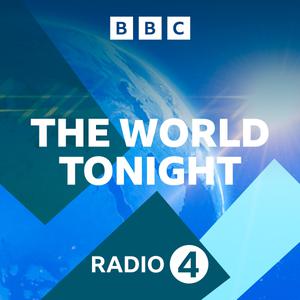 The World Tonight
The World Tonight
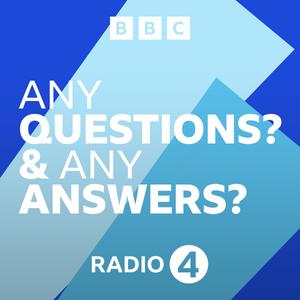 Any Questions? and Any Answers?
Any Questions? and Any Answers?
 Best of Today
Best of Today
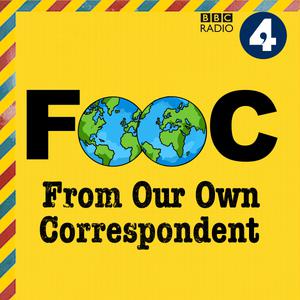 From Our Own Correspondent Podcast
From Our Own Correspondent Podcast
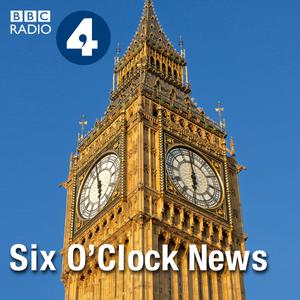 Six O'Clock News
Six O'Clock News